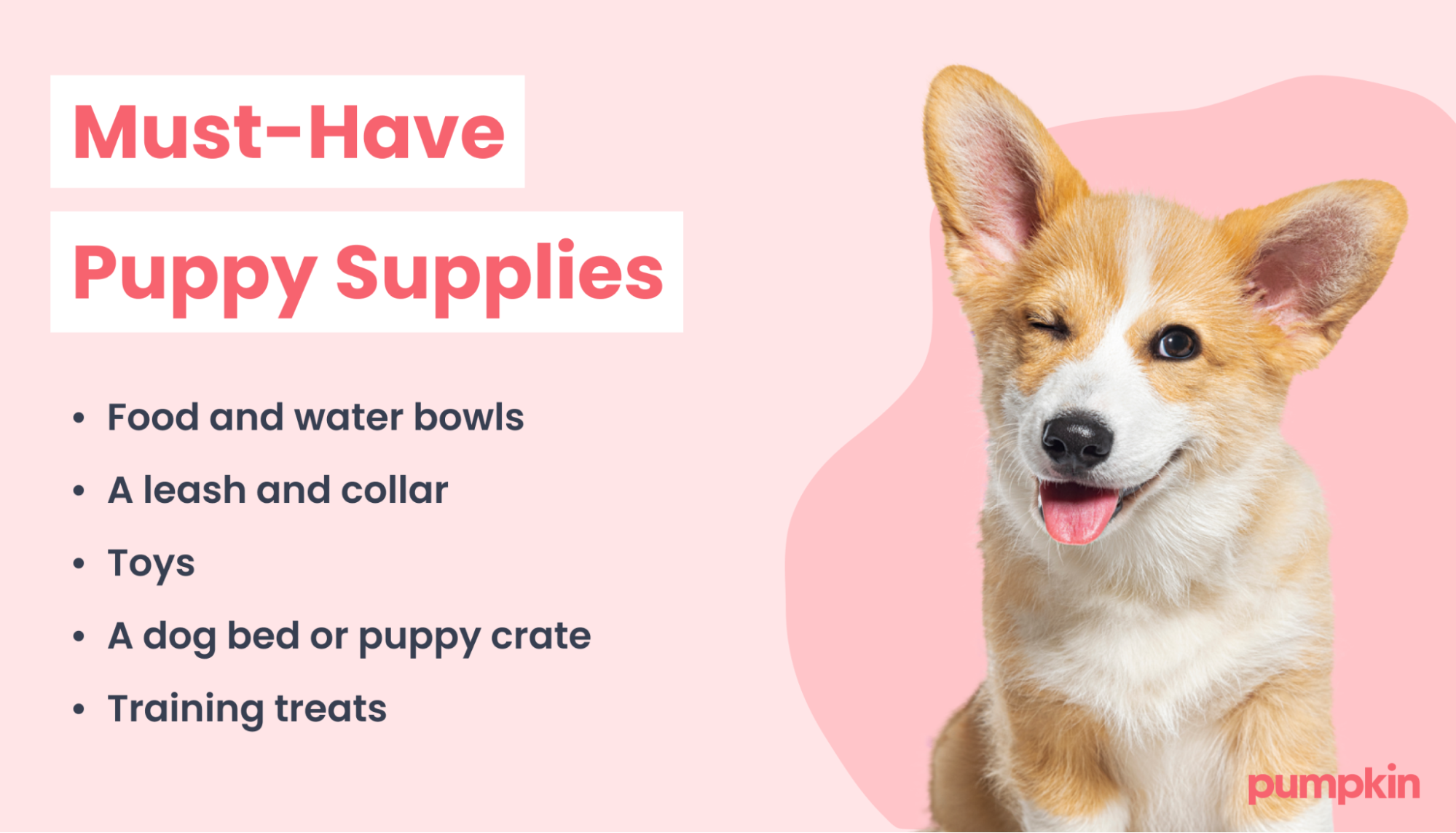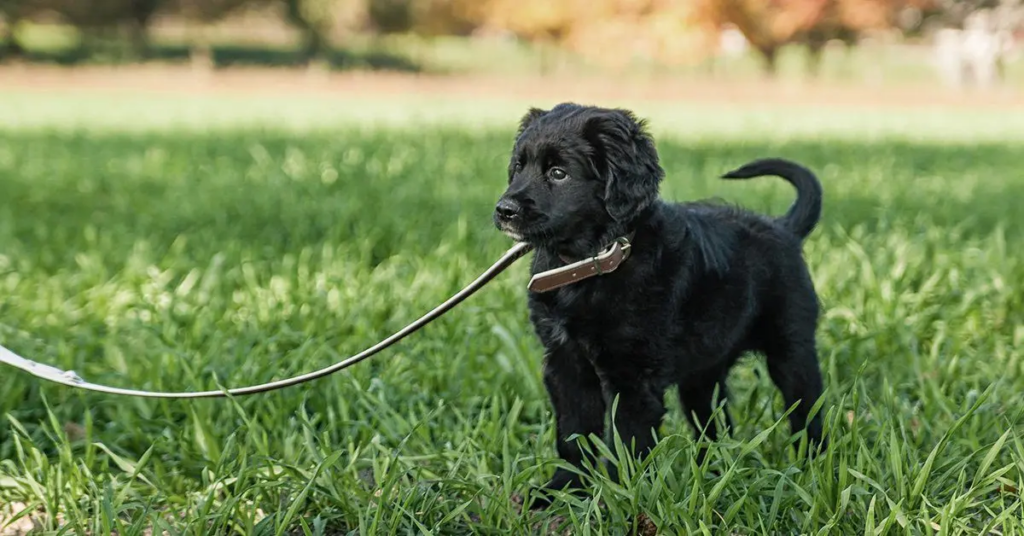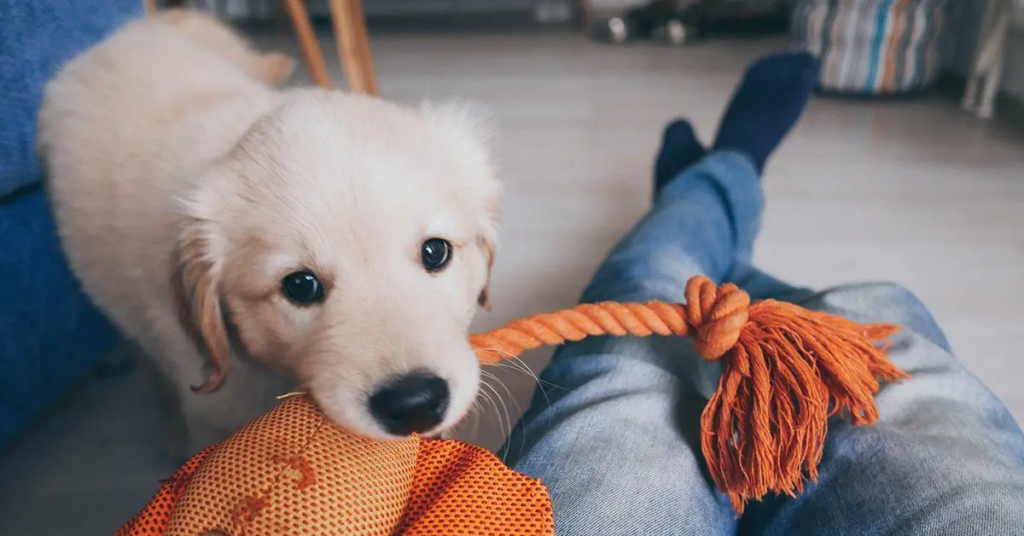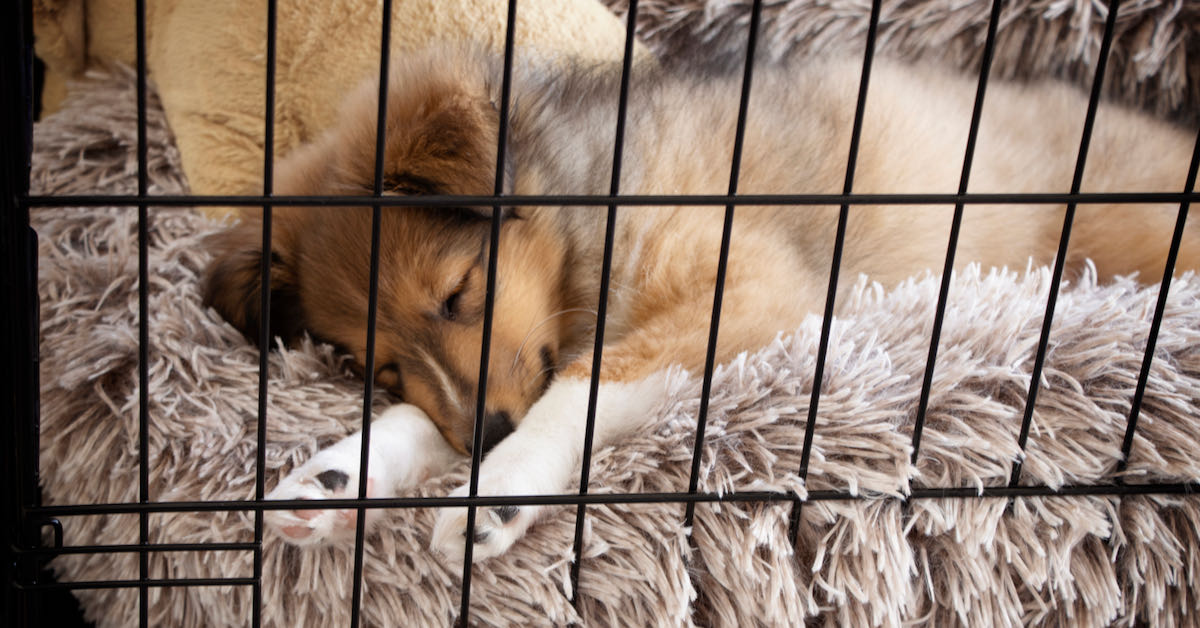- Jan 27, 2025
- 8 min read
Updated: Nov 5, 2025
Key Points
Before fetching your puppy, stock up on supplies, puppy-proof your house, and prepare your car for safe travels.
You can make the puppy's transition easier by giving them a blanket or toy that smells like their mom.
Avoid hosting family or friends (outside your immediate household) during the first night so you don’t overwhelm your new pup.
Most puppies go to their new homes when they’re about 8-10 weeks old, and their world changes instantly. Until now, they’ve been snuggled up with their mom and littermates.
Suddenly, they’re in an unfamiliar place surrounded by new smells, noises, people, and perhaps other animals.
As your puppy gets used to their new environment, you’ll encounter lots of whining, howling, crying, and barking. But fear not — this is normal behavior for a young puppy, and as they settle in, this behavior will stop.
In this article, you’ll learn how to prepare for your first night with your future best friend and give them the best possible welcome experience.
Your puppy’s first night: Step-by-step
Once your pup is home, life will get busy fast. So, to make the transition as easy as possible for the puppy (and you), there’s plenty you can do before they arrive.
1. Shop for puppy supplies
Make sure you tick all the boxes on your puppy supplies checklist. Some basics are:
High-quality puppy food and water bowls
A leash and collar
A dog bed
A puppy crate with enough room to stand, turn around, and lay down

Keep in mind that a puppy’s digestive system is still developing, and they can get an upset tummy easily. To avoid surprise vomiting or diarrhea, it’s best to keep feeding them the same puppy food they’ve been eating.
Most breeders will send you home with some food, but if not, be sure to buy an additional pack of the same food so you can keep feeding it to them. Later, you can change their food by gradually mixing the new food with the old food over 7 days.
Remember: If your future pup isn’t fully weaned yet, then it’s too soon to take them away from their mama!
2. Set up a safe puppy zone
You’ll want to create a safe and comfortable space for your puppy to play and sleep without getting into trouble. Enclose this puppy zone with a small playpen or gate the area off. It should be large enough to hold their belongings and accommodate independent playtime.
Note: Young puppies sleep about 15-20 hours per day, so try to set up their puppy zone in a quiet place so they can rest.
You can also make your entire home puppy-proof by removing any hazards:
Picking up small objects they can chew or swallow
Moving electrical cords
Taking away poisonous plants and anything else that might cause injury
Keep plenty of puppy pee pads on hand
3. Prepare your car for safe puppy travels
How will you travel with your new puppy?
You can find lots of great travel gear for dogs, but a crate is always your best option. It provides a safe space for your pup to observe the new world around them. Put a blanket or pad in the crate so your puppy can snuggle up to nap if needed.
Better yet, you can bring along a friend or family member to keep your puppy company during the drive home. For long drives, provide bathroom breaks or bring some doggy diapers. These little ones will need to go often, especially when anxious.

Tip: When you go to pick up your pup, bring a blanket or towel to pick up the scent of their mom and littermates. Giving them the blanket will make them feel comfortable and safe and help soothe those puppy cries with a familiar scent.
4. Consider puppy insurance
New puppies are naturally energetic and curious, so they often get into little scrapes and tumbles, which can sometimes mean unexpected vet visits. As all pet parents know, vet bills can add up.
Getting pet insurance early can be a smart way to protect your new pup and your wallet. Since pet insurance doesn't cover pre-existing conditions, you'll get the most coverage by starting when your pup is young.

More tips for your puppy’s first night at home
Those first days and weeks with your new pup are all about bonding, establishing a routine, building their confidence, and avoiding bad habits. Your puppy will need lots of physical activity, training, and a healthy dose of patience and love.
Let’s dive into the play-by-play of your puppy’s long-awaited arrival.
Arriving home
As soon as you get home, take your puppy to their designated potty area and set them down.
Say their name and whatever word or phrase you plan on using for potty training, such as “Go potty.” Give them some time to wander and sniff around (they probably won’t go far). It can take up to 15 minutes for your pup to figure out what they’re supposed to be doing. When your puppy finally pees or poops, give them lots of praise.
After your puppy has taken care of business, let them inside to roam around the house. They should sniff out their new environment, but keep a close eye on them at all times.
Feeding them
Your puppy will appreciate a small meal when they first arrive home. Anxiety can create a tummy ache, so offering a tiny meal will solve a hunger problem without an upset stomach.
Some puppies do well with four to six meals a day at first, whereas others are fine with three to four. Regardless of where your puppy falls, follow dietary recommendations and get them into a regular feeding schedule.
Meeting the family
Kids get very excited when a new puppy arrives, and rightfully so. Plan on supervising their playtime for a while until your kids learn how to interact with their new pup safely.
Puppies like to chew, nip, and bite when exploring or playing, so it’s important to help your children understand this natural behavior. Also, only allow your small kids to hold the puppy while sitting. It’s never a good idea for them to carry a puppy, as it can easily cause the pup to get hurt.
Meeting other animal friends
If you have other household pets, it’s essential to socialize them early on.
Your other pets may not welcome your rambunctious new puppy at first. They may growl, snarl, or ignore the puppy if they're territorial. During those first days and weeks, it’s a good idea to separate them and let them play for only short amounts of time.
The puppy zone will especially come in handy in this instance. Giving your new puppy and your other pets space from each other can help their relationship safely progress.
Don’t forget regular bathroom breaks
Young puppies have underdeveloped bladders. Some need to pee every hour, and others every 15-30 minutes.
Nerves and anxiety will also affect how frequently your puppy needs a bathroom break. Setting 30-minute alarms on your phone can help you avoid accidents.
Routine times to take your puppy for potty breaks are:
First thing in the morning
After meals
After a nap
After playtime
Before bedtime
One or two times during the night
You’ll also learn your puppy’s body language relatively quickly and know when it’s potty time.
Puppies don’t distinguish between good and bad attention, so discipline when an accident happens can confuse them. Positive reinforcement for good behavior goes much further.
Limit visitors
Though you want to show off your little one to the world, the first days after your puppy arrives are not the time for visitors.
In fact, until your puppy is vaccinated, you should be cautious around public places and strange dogs, as their immune systems are very fragile. Many people make the mistake of taking their puppies to the dog park too early, risking exposure to parasites and illness.

Helping your puppy sleep at night
Your puppy’s first day will likely fly by, and before you know it, it’s time for bed. Here are some useful things to know about your puppy’s first night at home, including where they should sleep, what to do when they cry, and more.
Where is the best place for your puppy to sleep?
Your puppy will sleep better if you provide a bed or crate within your sight and smell range. You are your new puppy’s family without mom and siblings, so they’ll find comfort in your presence at night.
Crate or puppy bed?
A crate works well to keep your pup calm and prevent them from wandering or relieving themselves while you sleep.
It also provides a cozy area for your puppy to relax during the day and take those important naps. A bed won’t prevent wandering and accidents during the wee hours of the night. However, you can put a small dog bed inside their crate.
Can your puppy sleep with you?
As hard as it might be to resist those puppy cuddles, you shouldn’t let your puppy sleep with you — especially before housebreaking is complete. Puppies wake up during the night and can be restless. If on a bed, they can fall off and injure themselves.
Should you leave a puppy to cry in the crate?
Leaving a new dog or puppy to cry during the night is not a good idea. It’s heartbreaking and causes extreme distress for both you and your puppy and can even cause behavioral issues like separation anxiety later on.
Place the blanket or towel with their mom's or littermates’ scent inside the crate to calm them down. The familiar smells will help your pup relax and fall asleep, especially during the first week. If necessary, visit your pup during the night until they stop whining.
You can also provide a plush, snuggly toy for your puppy to curl up with. Puppies sleep curled up with their littermates — so a good toy can simulate this experience. Amazon carries some plush toys with heartbeats for times like these.

If those tricks don’t work, you must establish a bedtime routine. For example, a final toilet break and a few calm moments before bedtime can help your puppy understand it’s time to settle down.
Should I take my puppy for potty breaks during the night?
Your puppy will need potty breaks during the night. Taking them for a just-before-bed potty break is a good idea so they can go longer without having to go potty again.
When your pup wakes up at night, take them outside for a potty break and return them to the crate. Don’t use treats to get them to enter the crate or start playing with them. This is quiet time, and if you stick to a schedule, your pup will soon learn to sleep through the night.
Being a new puppy owner can be chaotic but also enormously rewarding. Your puppy’s first night with you is important for bonding, establishing routines, and building confidence, so plan ahead to make sure it goes smoothly.
FAQs
Is the first night with a puppy the hardest?
Typically, the first night is the hardest since you and the pup are getting used to each other. This is your puppy’s first time away from their mother and littermates, and the new environment can overwhelm them. Preparing a cozy crate with familiar scents can comfort them, but a certain amount of whining is to be expected.
Should I lock my puppy in their crate at night?
You should lock your pup in their crate at night, provided that it’s big enough for them to move around comfortably. This can help prevent them from roaming around the room or house and getting into trouble.
Should I put a pee pad in my puppy’s crate at night?
Try to avoid putting a pee pad in the crate. Because you don’t want them to go to the bathroom in their crate, this might confuse them. Instead, try to have your pup do their business right before crate time. Unfortunately, until they’re fully house-trained, some accidents are unavoidable.
REFERENCES

